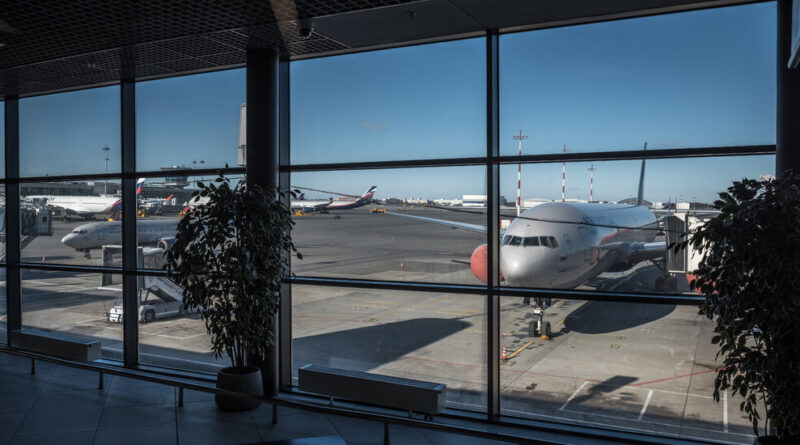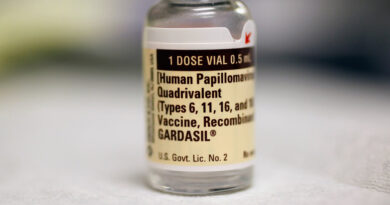U.S.-Made Technology Is Flowing to Russian Airlines, Despite Sanctions
[ad_1]
Last August, Oleg Patsulya, a Russian citizen living near Miami, emailed a Russian airline that had been cut off from Western technology and materials with a tempting offer.
He could help circumvent the global sanctions imposed on Rossiya Airlines after Russia’s invasion of Ukraine by shuffling the aircraft parts and electronics that it so desperately needed through a network of companies based in Florida, Turkey and Russia.
“In light of the sanctions imposed against the Russian Federation, we have been successfully solving challenges at hand,” Mr. Patsulya wrote, according to a criminal complaint filed Friday with the U.S. District Court in Arizona.
Mr. Patsulya and his business partner were arrested Thursday on charges of violating U.S. export controls and international money laundering in a case that illustrates the global networks that are trying to help Russia bypass the most expansive technological controls in history.
Since the Russian invasion of Ukraine, the United States has acted in partnership with nearly 40 other governments to impose sanctions on Russia, including limits on Moscow’s access to weapons, computer chips, aircraft parts and other products needed to fuel its economy and its war. The sanctions also applied to Russian airlines including Aeroflot, its subsidiary Rossiya and others.
But despite these far-reaching sanctions, thousands of shipments of aircraft parts were successfully sent into Russia last year, according to a trove of Russian customs data obtained by The New York Times.
The data, which was compiled and analyzed by Import Genius, a U.S.-based trade data aggregator, shows that tens of millions of dollars of aircraft parts were sent to Russian airlines explicitly facing sanctions by the Biden administration, including to Rossiya Airlines, Aeroflot, Ural Airlines, S7 Airlines, Utair Aviation and Pobeda Airlines.
Those shipments were made possible by illicit networks like Mr. Patsulya’s, which have sprung up to try to bypass the restrictions by shuffling goods through a series of straw buyers, often in the Middle East and Asia.
For instance, dozens of shipments of copper wires, bolts, graphite and other parts marked as made in the United States by Boeing slipped into the warehouses of Aeroflot last year. They traversed obscure trading companies, free-trade zones and industrial parks in the United Arab Emirates and China, and then traveled into Russia, to help patch up Aeroflot’s dilapidated fleet.
The data captures more than 5,000 individual shipments of aircraft parts into Russia over a period of eight months in 2022, from simple screws to a Honeywell-branded aircraft engine starter valued at $290,000.
In all, it shows that $14.4 million of U.S.-made aircraft parts were sent into Russia during the eight months, including $8.9 million of parts that are described as being manufactured or trademarked by the U.S. plane maker Boeing and sold into Russia via third parties.
Boeing said it had fully complied with U.S. sanctions and had suspended providing parts, maintenance and technical support for customers in Russia in early 2022. Experts in the aviation supply chain said the parts probably came from a variety of sources, such as existing overseas stocks from airlines and repair facilities or resellers who trade in scrapped parts.
Most of the products were routed through countries like the United Arab Emirates, Turkey, China and the Maldives, according to the data. But a handful of shipments — including to Rossiya — were sent directly from the United States or Europe.
The shipments also increased over the course of last year as Russia recruited global businesses to help it bypass the sanctions. The trend suggests that “networks for evading sanctions took time to establish during the immediate post-export-control scramble but are now in a position to help Russian airlines source some key parts,” said William George, the director of research at Import Genius.
The Russian nationals taken into custody on Thursday began setting up their scheme last May to send aircraft parts from the United States to Russia in violation of export regulations, according to the criminal complaint.
The men are accused of fielding requests for parts, including expensive brake systems for a Boeing 737, from at least three Russian airlines, including two that had been strictly barred from purchasing U.S.-made products through a so-called temporary denial order issued by the Commerce Department. F.B.I. agents raided a condo owned by the men’s company in the Trump Towers in Sunny Isles Beach, Fla., on Thursday.
Lawyers for the men did not immediately respond to a request for comment.
Despite the level of sanctions evasion, airplane shipments into Russia remain significantly lower than before the war. U.S. officials say Russian airlines have been forced to cannibalize planes, breaking them down for spare parts to keep others in operation, as well as turning to Iran for maintenance and parts.
Russia’s imports of aircraft and aircraft parts fell from $3.45 billion annually before the invasion to only about $286 million afterward, according to The Observatory of Economic Complexity, a data visualization platform that explores global trade dynamics.
According to Silverado Policy Accelerator, a Washington nonprofit, China has been the leading overall exporter of parts for aircraft, spacecraft and drones to Russia since the invasion, accounting for about half of all shipments, followed by India.
The number of single-aisle planes in use in Russia fell about 16 percent from the summer of 2021 to the summer of 2022, after the invasion, according to Cirium, an aviation data provider. The number of larger twin-aisle planes, often used on international routes, was down about 40 percent.
Aviation experts say it will become more challenging for Russian airlines to continue flying planes without access to Western suppliers and help from Boeing and Airbus. The manufacturers regularly consult with airlines to assess any damage and strictly control access to technical documentation used by mechanics.
But for now, Russian airlines have been kept alive with the help of international shipments and the use of hundreds of foreign jets that were stranded there after the war began.
Tens of thousands of flights are expected to crisscross Russia this month, according to schedules published by Cirium. More than 21,000 flights — over half of them operated by Russian airlines — are expected to carry passengers to and from countries in Central Asia, as well as Turkey, the United Arab Emirates, Egypt, China and Thailand.
Half a dozen export control lawyers and former government officials consulted by The New York Times said that many of the shipments in the Import Genius data likely violated sanctions, but that plane makers like Boeing or Airbus were not necessarily at fault. The aviation supply chain is complex and global, and the parts could have come from a variety of sources.
“There is pretty clearly a violation,” said William Reinsch, a trade expert at the Center for Strategic and International Studies who oversaw export controls during the Clinton administration. “Less clear is the guilty party.”
Aircraft parts originating in the European Union, including those marked as being manufactured or trademarked by Airbus, were also shipped into Russia last year, according to the data.
Justin Dubon, a spokesman for Airbus, said that the company keeps track of genuine parts and documentation provided to its customers and conducts due diligence on all parties requesting spare parts. Restrictions in the United States and Europe mean that “there is no legal way that genuine aircraft parts, documentation and services can get to Russian carriers,” he said.
U.S. restrictions technically allow companies to apply for a special license to continue sending products to Russian carriers for “safety of flight” reasons, but both Boeing and Airbus said that they had neither sought nor received such a license. In addition, Airbus said that E.U. laws prevent it from shipping such goods to Russia, regardless of U.S. licensing.
Current and former U.S. officials say that some shipments into Russia are to be expected. Kevin Wolf, a partner at the law firm Akin Gump who oversaw export controls during the Obama administration, said the restrictions “can never block everything,” but that the rules were still significantly degrading Russia’s capabilities.
He added that the scope of the new rules still exceeds current methods of tracking and enforcement in other allied countries. Until the invasion of Ukraine, trade in aircraft parts was mostly unrestricted by the United States and other countries, except to Iran, Cuba, North Korea and Syria.
“It’s improving,” Mr. Wolf said, “but it’s still way, way behind.”
Compared with other countries that mostly limit their scrutiny to goods crossing their own borders, the United States is unparalleled in its attempt to police commerce around the world.
In the past three years, the United States has imposed new technology restrictions for Russia, China and Iran that apply extraterritorially: Products made in the United States, or in foreign countries with the help of American components or technology, are subject to U.S. rules even when changing hands on the other side of the world.
Both the United States and the European Union have been ramping up penalties for companies that violate sanctions, and dispatching officials to countries like Kazakhstan to try to persuade them to clamp down on shipments to Russia through their territory. The U.S. government has nine export control officers stationed in Istanbul, Beijing and other locations to trace shipments of sensitive products, and it is setting up three more offices.
But providing parts can be a lucrative business. James Disalvatore, an associate director at Kharon, a data and analytics firm that has been monitoring Russia’s efforts to bypass sanctions, said the value of some aircraft parts imported by Russian airlines since the invasion had risen fourfold or more.
“I don’t think there’s any secret what’s going on,” said Gary Stanley, a trade compliance expert who advises businesses in aerospace and other industries. “How long have we had Cuban sanctions? How long have we had North Korean sanctions? How long have we had Iranian sanctions? It never seems to put these folks out of business.”
[ad_2]
Source link



